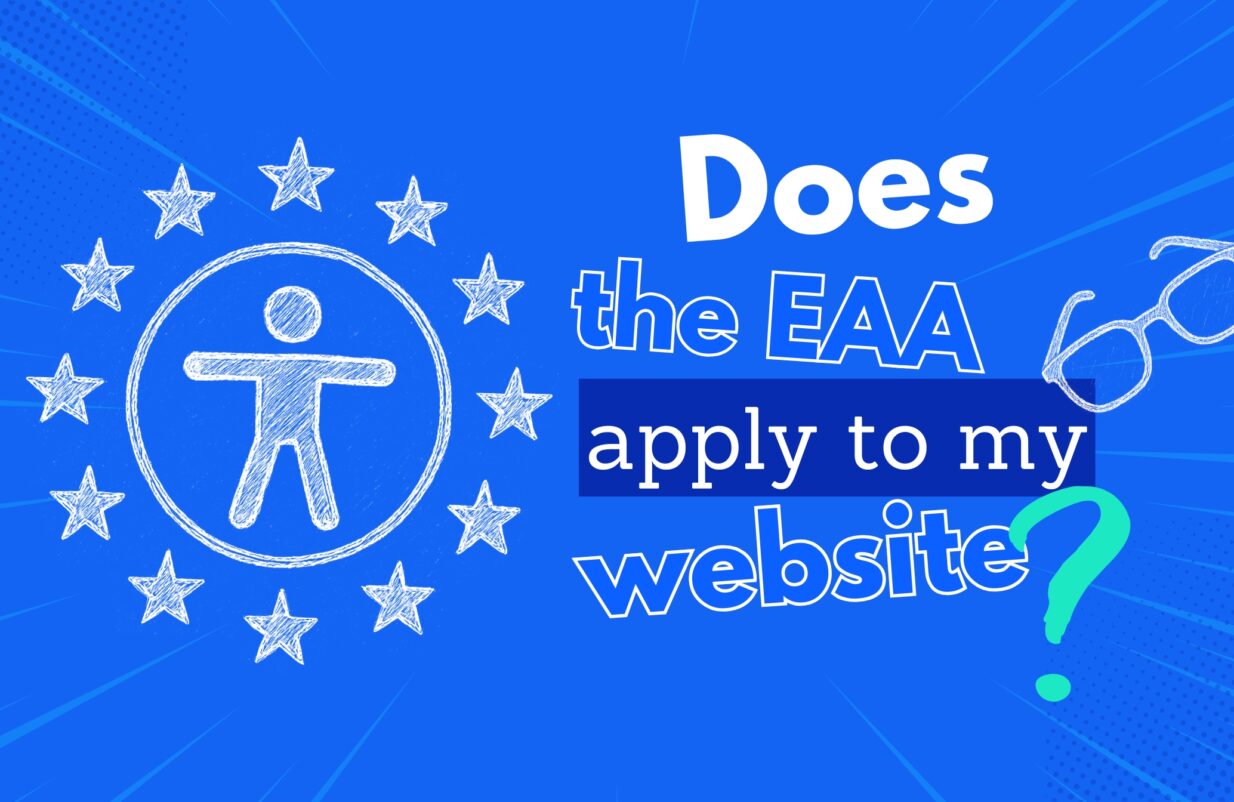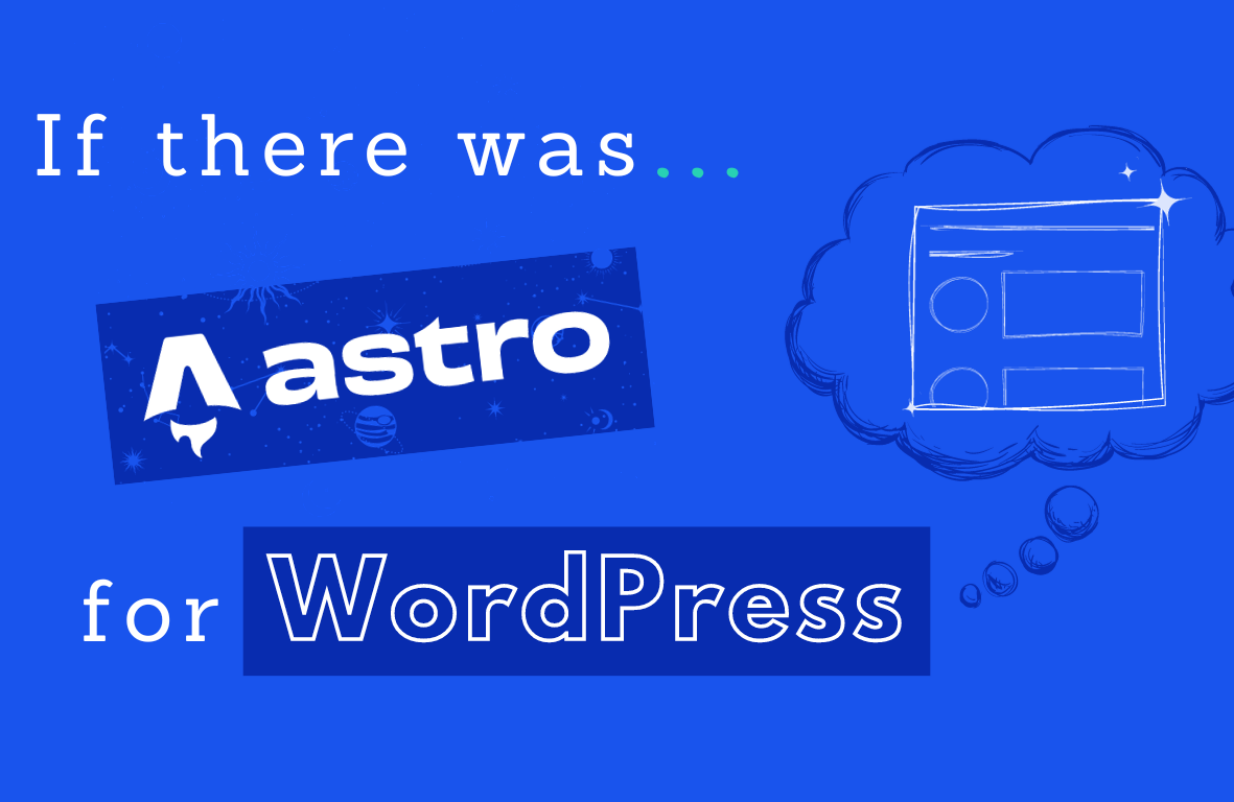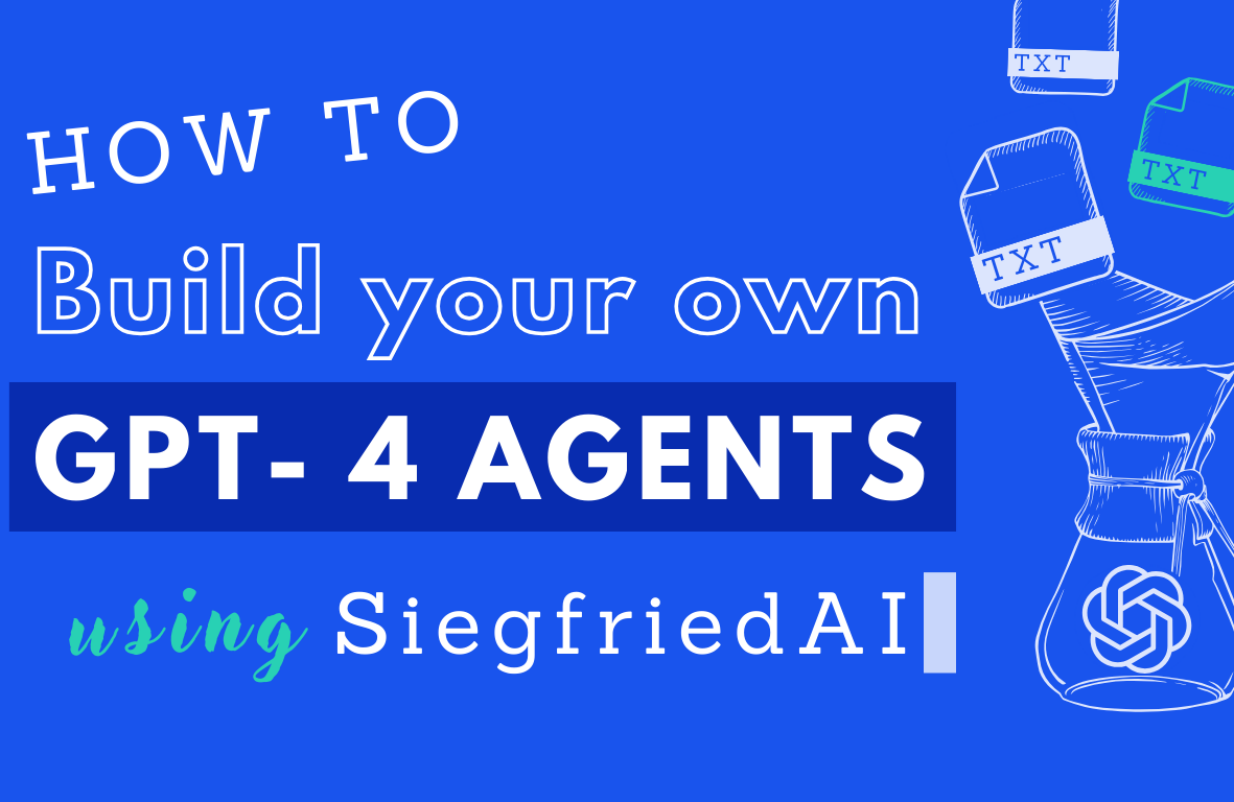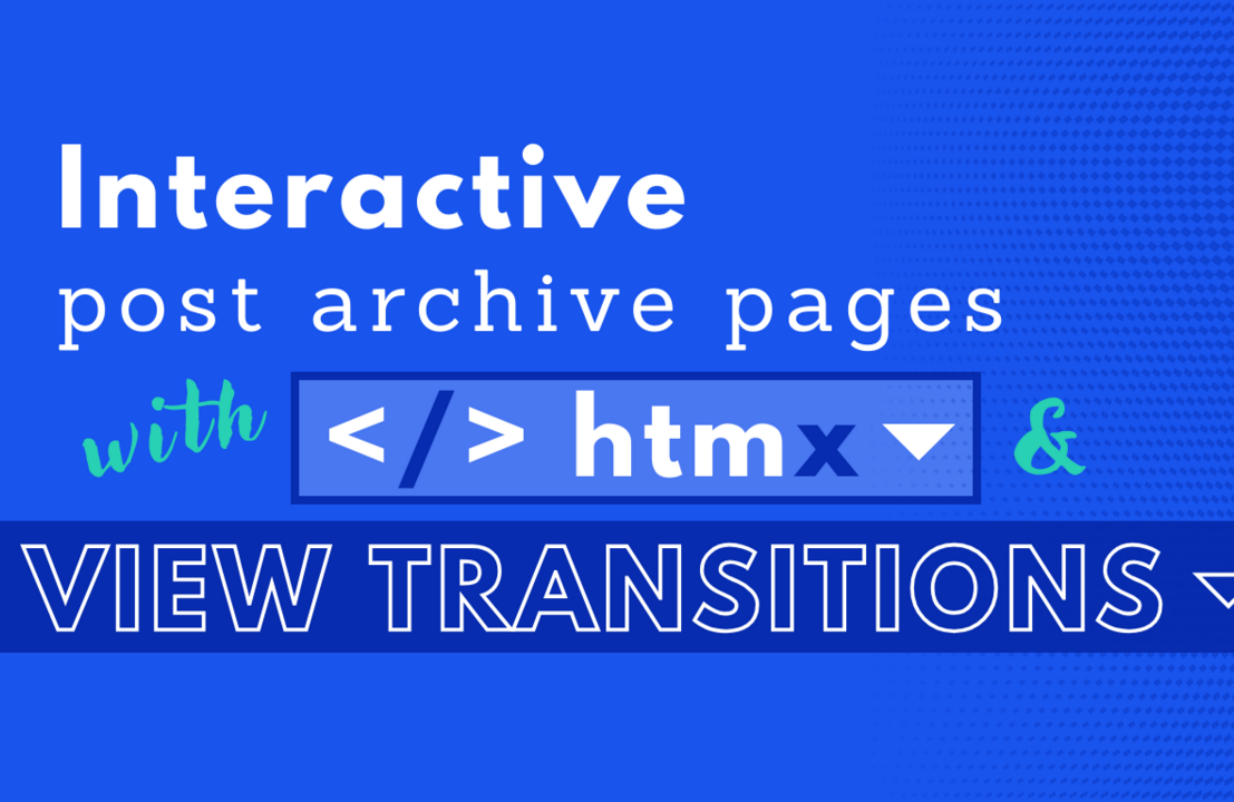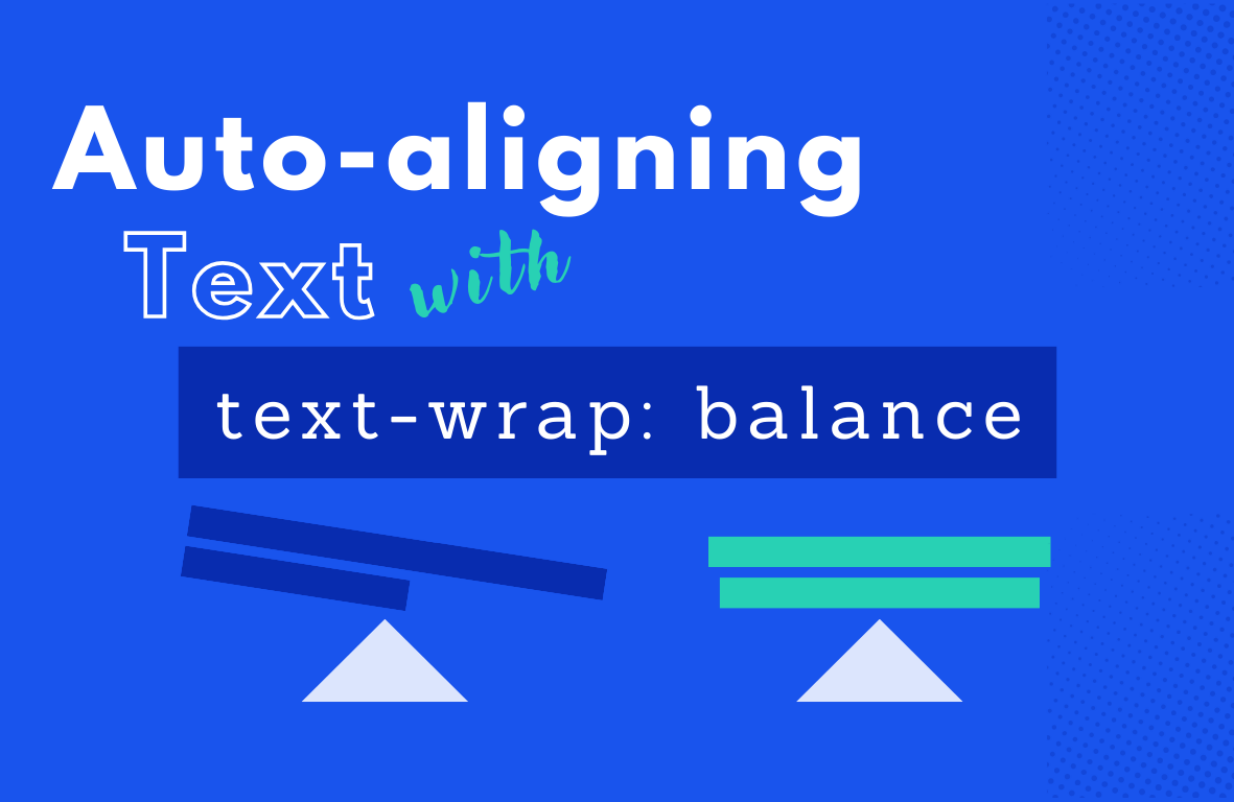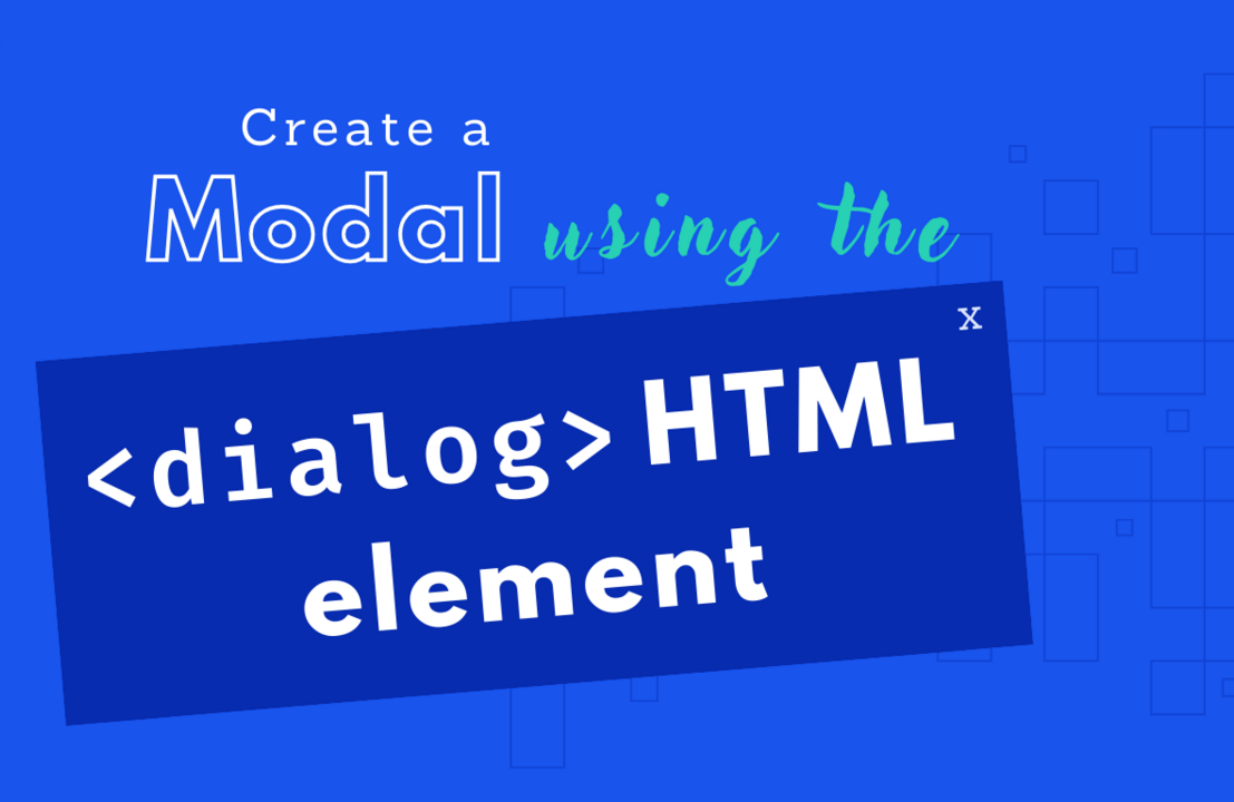in Security
Why it’s time to upgrade to PHP 8.3
Keeping WordPress fast and secure starts with the PHP version your site runs on. WordPress now officially supports PHP 8.3 as it crossed the adoption threshold. It's the perfect moment to upgrade and benefit from the improvements.
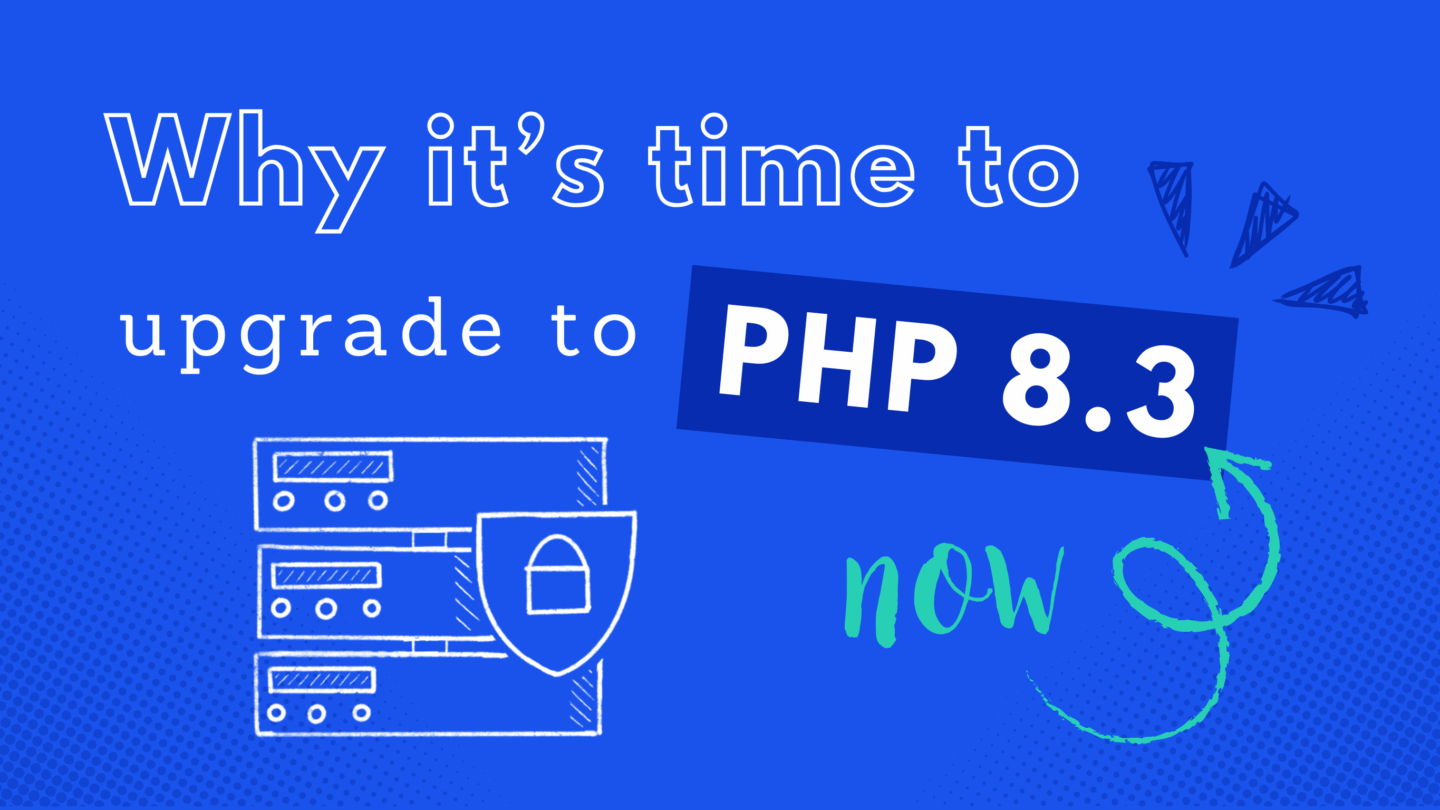
WordPress now officially supports PHP 8.3. Until recently, support was still marked as beta. That wasn’t because WordPress wasn’t ready, but because the project waits until at least 10% of all sites are running a version before labeling it fully compatible. That milestone has now been passed.
What’s new in PHP 8.3
PHP 8.3 was released on 23 November 2023 and brings solid improvements. Developers can now define types for class constants, use dynamic class constant fetches, validate JSON directly with the new json_validate() function and more. Additionally, PHP 8.3 comes with performance improvements, bug fixes and deprecations for a clean path forward.
The 2×2 PHP lifecycle
One of the main reasons upgrading matters is the lifecycle of PHP itself. Each version only gets two years of active support, followed by another two years of security updates. After that, it’s end of life. No more bug fixes, no more patches, and no more safety net.
At the time of writing (September 2025), PHP 8.1 is already in its final stretch, receiving only security updates until December 2025. PHP 8.2 will follow a year later. PHP 8.3, in contrast, has active support until the end of this year and will continue to receive security updates until December 2027. PHP 8.4, the newest release, extends that horizon even further.
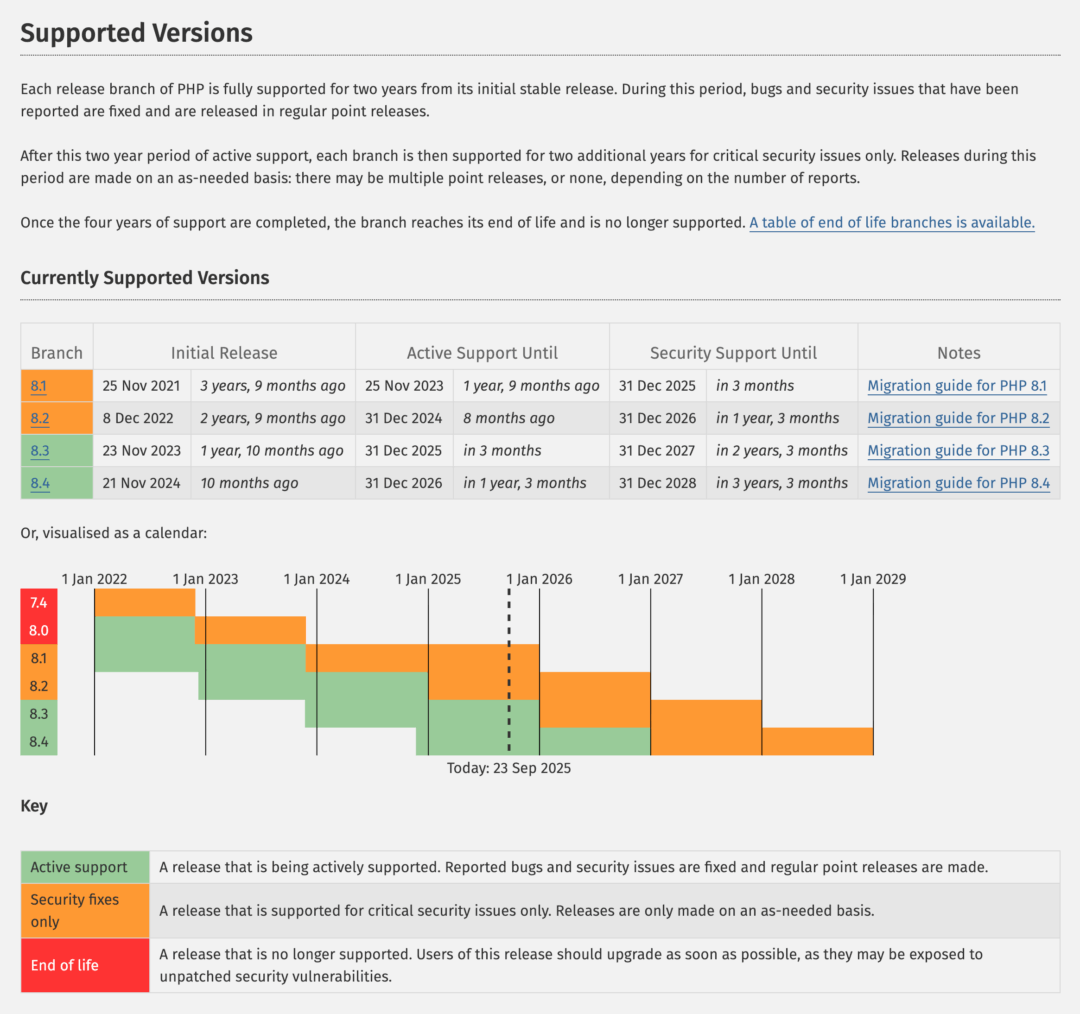
PHP lifecycle as of September 2025 (source)
The 10% adoption threshold of WordPress
WordPress 6.8 is marked to fully support PHP 8.3 since the beta label was removed. That “beta” label often causes confusion. In practice, it’s a safeguard:
Support is labelled as “beta support” until at least 10% of all WordPress sites are running that version or later.
make.wordpress.org
While every WordPress core version with a “beta support” label is tested and compatible with the given PHP version already, the ecosystem of plugins and themes might not have caught up yet. That’s why it’s recommended to wait for the adoption threshold.
That 10% threshold for websites running WordPress 6.8 in combination with PHP 8.3 has been passed in July 2025. If you’re on WordPress 6.8, you can switch to PHP 8.3 expecting that popular plugins and themes will be compatible as well.
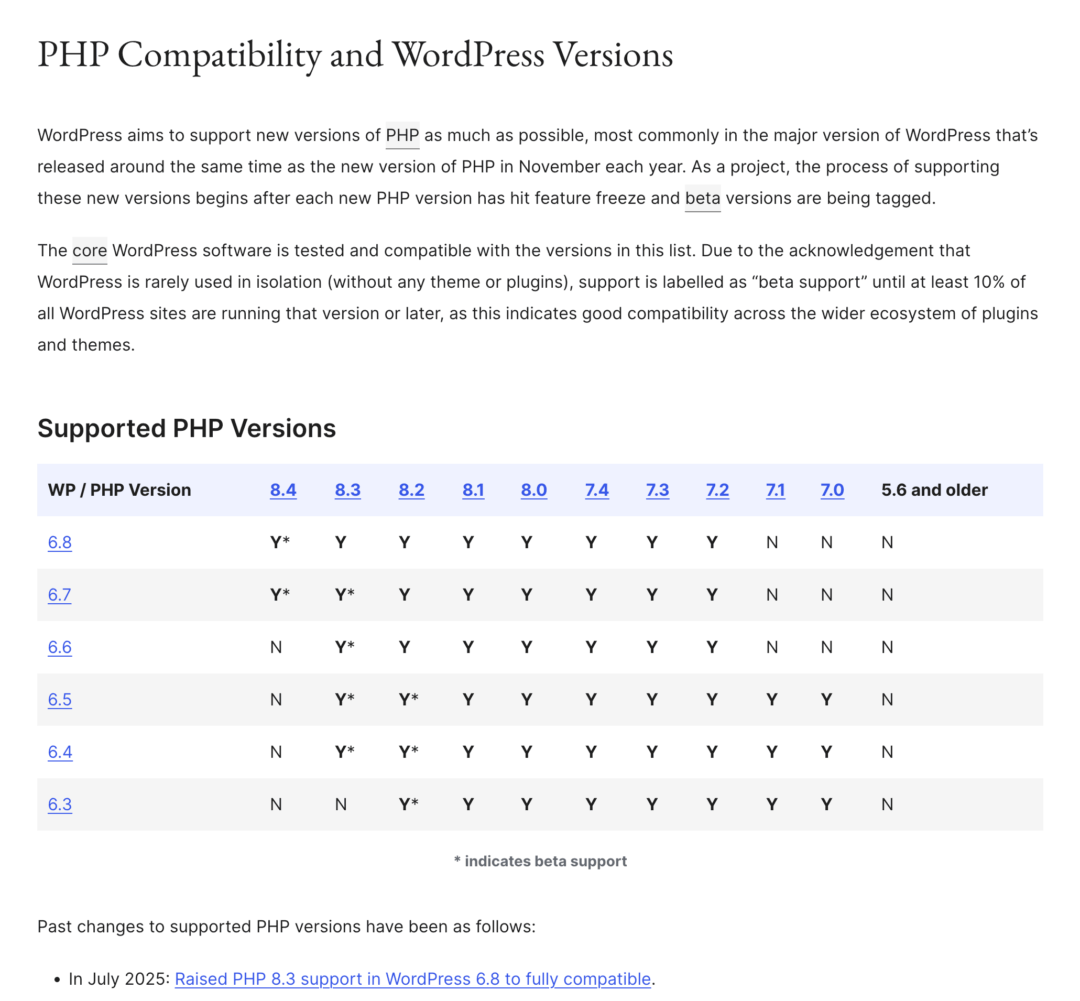
WordPress / PHP compatibility as of September 2025 (source)
Why you should upgrade
There are three key reasons to keep your PHP version up to date:
- Security: Running outdated PHP versions is a risk. It’s only a matter of time before vulnerabilities appear, even when WordPress is up-to-date. Upgrading ensures your WordPress website continues to stay safe.
- Performance: Every new PHP version brings gains. Faster page loads improve the user experience in the WordPress backend and on the website frontend, increase conversion rates, and are rewarded by search engines.
- Compatibility: The WordPress ecosystem is moving on. Web hosting providers, plugins, and themes are dropping support for older versions to reduce maintenance. By upgrading, you ensure your site remains compatible and easier to maintain in the future.
Challenges you might face
Some plugins or themes may not be fully compatible with PHP 8.3, especially if they rely on deprecated functionality. The same goes for custom code that hasn’t been updated in a while. This would result in warnings or errors on your website.
In rare cases, your hosting provider might not yet offer PHP 8.3, but that should be a sign to consider switching hosts.
How to upgrade safely
The safest path starts with a testing or staging environment. Update your WordPress core, plugins, and themes before changing the PHP version. Then switch to PHP 8.3 and enable debug mode to spot any warnings or errors.
If everything works smoothly, you’re ready to roll out to production. Always make sure you have a rollback plan in place, just in case. And once you’ve switched, keep monitoring your site closely for a few days to ensure no issues pop up.
FAQ: Upgrading WordPress to PHP 8.3
Do I need WordPress 6.8 to use PHP 8.3?
WordPress 6.8 is the first version with full compatibility. Other WordPress versions are officially in beta support, as of September 2025.
What if my hoster doesn’t support PHP 8.3 yet?
It’s worth asking them directly. If they don’t have a clear timeline, you might want to consider switching hosting providers. PHP support is a basic service that every host should provide promptly.
Is it safe to stay on PHP 8.1 or 8.2 for now?
Yes, but don’t wait too long and move before their end of life (EOL). PHP 8.1 reaches EOL in December 2025, PHP 8.2 in December 2026.
Can I upgrade to PHP 8.4 already?
WordPress 6.8 is still in beta support for PHP 8.4, as of September 2025. It’s worth waiting until it reaches the 10% adoption threshold and WordPress marks it as fully compatible.
WordPress 6.8 officially supports PHP 8.3 since the 10% adoption threshold was reached. PHP 8.3 is supported until December 2027. Upgrading PHP improves performance, ensures long-term security, and keeps your site compatible with the WordPress ecosystem. Test the upgrade on a staging environment, fix warnings and errors, and you’ll be safe and future-proof.

